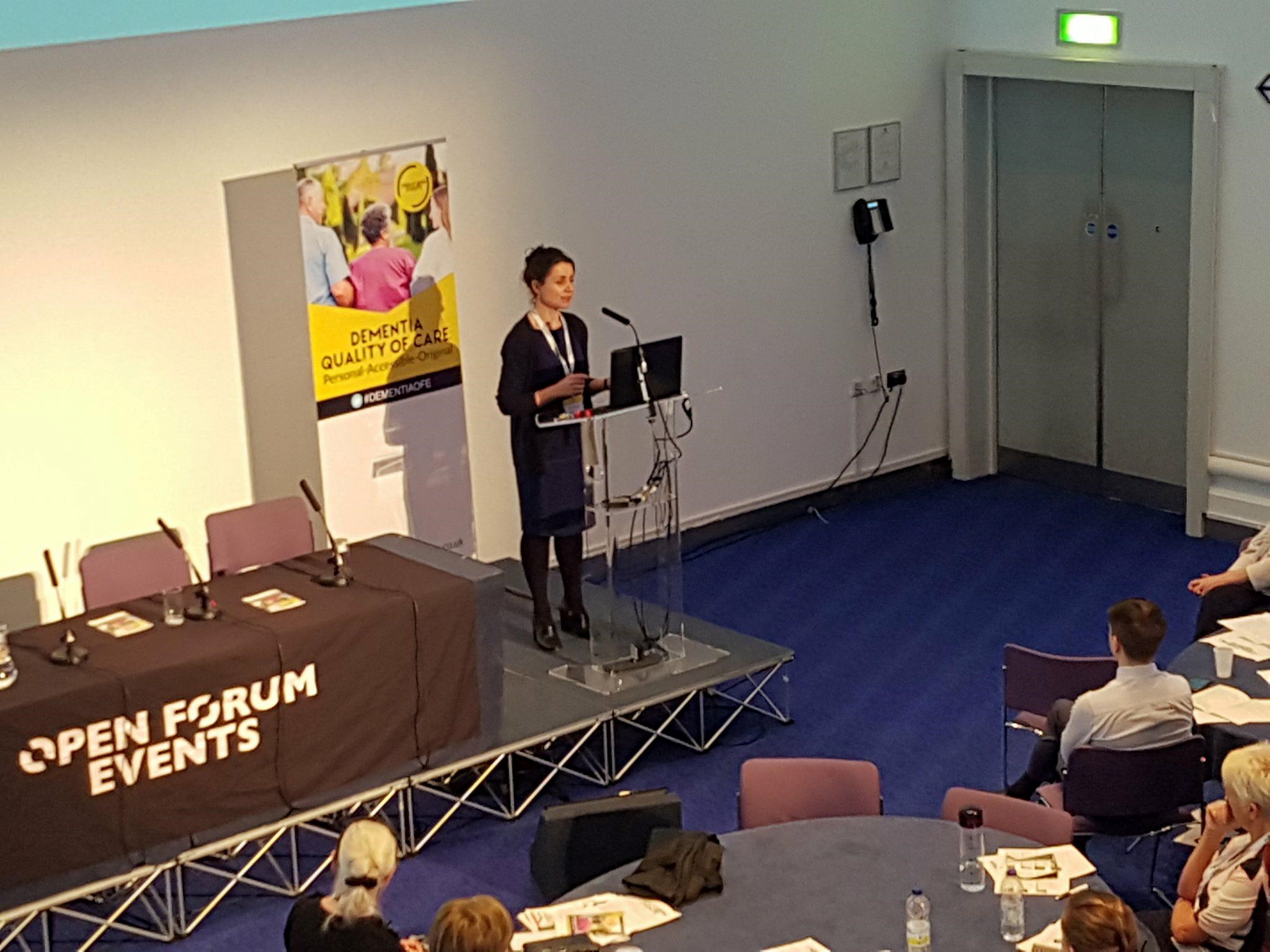Dementia Quality of Care: Personal-Accessible-Original Event Report
- 16 April 2018
- Posted in: Healthcare
In the UK, there are 11.4 million people aged over 65 and 850,000 of them have dementia. An ageing population means this figure is likely to grow to one million by 2021. Treating dementia is a high priority on the UK’s health and social care agenda and Open Forum Events are contributing to this discussion by bringing together some of the most forward-thinking and significant developments. The Social Care Green Paper by the Department of Health and Social Care is due later this year, which is expected to have more detailed proposals to tackling this issue.
Sue Clarke, Operations Manager Greater Manchester at the Alzheimer’s Society, excellently chaired the conference. In her opening address she stressed that it is not just health and social care organisations that should be taking responsibility for dementia care, everyone should. Professor Martin Green OBE, Chief Executive of Care England, then began the day with his keynote address on the long-term future of dementia care. He was a lively and engaging speaker who included in his address the need to acknowledge and reward social care in the same way as the NHS.
“Independence is about a state of being, it’s not where you live.” – Martin Green
Philly Hare, Director at Innovations in Dementia discussed the human rights side of dementia treatment and care, whilst Senior Implementation and Improvement Lead at Dementia United, Rachel Volland explored the effects of a devolved system. She highlighted the importance of decreased variation in access to services.

Sian Harrison, a Team Leader at End of Life Partnership spoke about the Namaste Programme, which engages people with advanced dementia through sensory input, of having powerful effects on its users. Taking a more cultural perspective, Claire Benjamin from National Museums Liverpool addressed the innovative education programme delivered by museums across the UK and how museums can fit into dementia care more generally.
“There is a notorious gap between policy and practice.” – Val Williams
Kicking off the afternoon session following the lunch break was Professor Val Williams, Dr Joseph Webb and Harry Davis from the Norah Fry Centre for Disability Research, University of Bristol. They gave one of the most engaging talks of the day, detailing the Forget-Me-Nots programme and their research on the fundamentals on communication.
George Rook, Chair of Patient Experience and Involvement Panel at Shrewsbury and Telford Hospitals NHS Trust lives with early onset dementia. He highlighted the importance of working with service users and supporting people in the early and middle stages of the disease. Deidre Cartwright from SafeLives closed the conference with a look at how domestic abuse affects older people. It can take twice as long for them to seek help.



